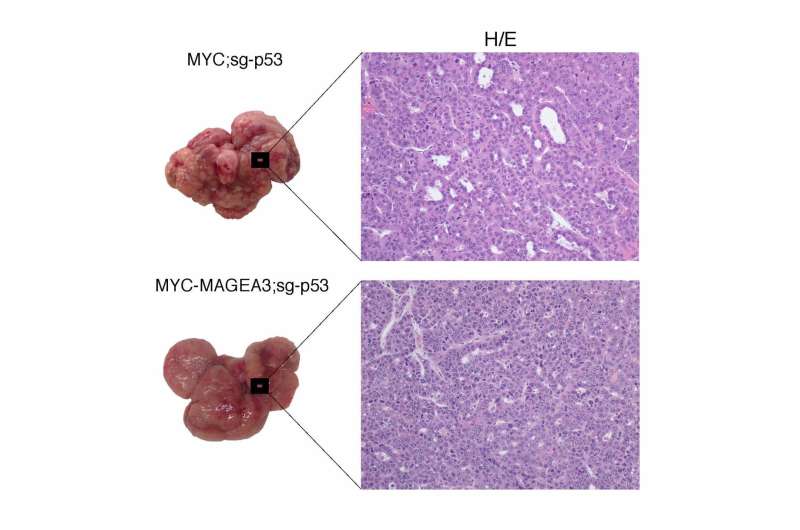Genetic study of liver cancer reveals new drug target

Drugs targeting the gene MAGEA3 may help block the growth of hepatocellular carcinoma (HCC), the most common type of primary liver cancer and one of the leading causes of cancer deaths in the country. That’s one conclusion of a new study analyzing the genetics of HCC tumors published June 24th in the journal PLOS Genetics by Augusto Villanueva of the Icahn School of Medicine at Mount Sinai and colleagues.
Scientists have previously discovered several genes that drive the growth of HCC tumors, yet treatment benefit from approved drugs is still limited. In the new study, Villanueva and colleagues collected 44 tumor biopsies from 12 HCC patients. The researchers used RNA sequencing to study which genes were more highly expressed in high-grade regions of a tumor compared to low-grade regions of the same tumor.
One family of genes—cancer testis antigens (CTAs) -was recurrently over-expressed in the most aggressive regions of tumors. CTAs, most of which are located on the X chromosome, are usually expressed in male germ cells within the testes and are believed to play roles in spermatogenesis as well as protecting germ cells from stressors and cell death. Villanueva’s team found that CTAs, and especially MAGEA3, are associated with poor prognosis in HCCs. Moreover, when the group blocked the expression of MAGEA3 in isolated HCC cells, the cells could no longer proliferate and eventually died. When the group overexpressed MAGE3 in the liver cells of mice prone to HCC, the animals died of cancer more quickly. Future studies are needed to replicate the results in larger patient populations and probe whether MAGEA3 itself, or its downstream targets, are more effective to target therapeutically.
Source: Read Full Article


